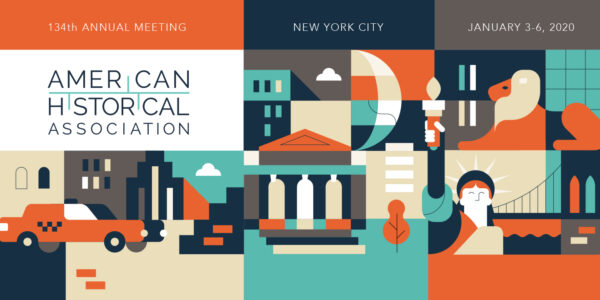The true crime genre has a long and rather complex history. From 16th-century crime pamphlets to 19th-century detective mysteries, true crime has long been a source of public fascination; however, its popularity in mainstream media has skyrocketed in recent years. Now, in addition to classic American television shows like America’s Most Wanted or Cops, fans of true crime can find new podcasts, books, Netflix docuseries, and YouTube channels that delve deep into some of the most shocking cases, exploring new theories and even investigating alleged miscarriages of justice.

Just last month, the annual Death Becomes Us True Crime Festival returned to DC and featured presentations from prominent true crime authors and podcasters, as well as appearances from Amanda Knox and Lorena Gallo (formerly Bobbitt). Hosts of the hit podcast My Favorite Murder have even gone as far as creating the moniker “murderinos” to refer to their audience of true crime fans. True crime is expanding to more media and reaching wider audiences than ever before.
At the 2020 AHA annual meeting, historians will discuss their research on crime, punishment, and policing through the lenses of gender, sexuality, immigration, and more. Interested in female killers? Wondering about the implications of marijuana legalization? How about the criminalization of HIV/AIDS? Check out some of the true crime panels that we’re excited to attend at AHA20:
Female Killers in the 20th Century: Gender, Modernity, and Punishment in Comparative Perspective
Friday, January 3, 1:30–3:00 p.m.
Empire Ballroom West (Sheraton New York)
Across time, the female killer has been the exception, forcing authorities to appraise culpability and motivation in gender-specific ways, filtered through readings of class, race, ethnicity, religion, age, marital status, and sexuality. This panel examines examples from California, Florida, New South Wales, and Quebec in the 20th century.
The Other Illegals: Unauthorized European Immigration to the US in the 20th Century
Immigration and Ethnic History Society 1
Friday, January 3, 1:30–3:00 p.m.
Sugar Hill (Sheraton New York)
Although unauthorized migrants have long found ways to circumvent the nation’s immigration laws, the history of “illegal” or undocumented European immigration in the United States is often selectively omitted from discourse surrounding that subject. This collection of papers seeks to shed light on those “other” illegal immigrants.
Revisiting Trafficking Narratives and Sexual Danger in 20th-Century Europe and the Americas
Berkshire Conference of Women Historians 2; Coordinating Council for Women in History 2
Friday, January 3, 3:30–5:00 p.m.
Chelsea (Sheraton New York)
This session explores the meanings attached to narratives of trafficking and sexual danger in turn-of-the century French classified ads, the postrevolutionary Mexican press, travelogues and migrant letters describing maritime travel, and feminist debates on “sexual slavery” in the United States in the 1980s.
Alcohol and Drugs History Society 1
Friday, January 3, 3:30–5:00 p.m.
Concourse H (New York Hilton)
This roundtable brings together public policy, public health, and history scholarship to address some of the key historical issues with marijuana use, regulation, decriminalization, and legalization that have bearing on the current debate over the role of marijuana in society.
Sexuality, Surveillance, and Bureaucracy in Cold War America
Committee on Lesbian, Gay, Bisexual, and Transgender History 4
Saturday, January 4, 8:30–10:00 a.m.
Murray Hill West (New York Hilton)
In the Cold War–era United States, new surveillance technologies and policing strategies directed against gays and lesbians created unprecedented sexual regulation, unintended consequences, and unexpected resistance. This panel investigates how law enforcement, the courts, and the private sector conducted surveillance and produced bureaucratic knowledge about homosexuality, and how targeted communities responded.
The Law’s Two Bodies: Legal Corpus and Marginalized Bodies in Europe and the New World
Saturday, January 4, 10:30 a.m.–12:00 p.m.
Madison Square (Sheraton New York)
This panel will examine internal operations of medieval law, specifically the extent to which existing legal toolkits and modes of representation inflected the construction and application of laws regarding abortion, infanticide, incest, and racism.
Urban Vice: Sex, Regulation, and Public Morality in the Late 20th-Century City
Monday, January 6, 9:00–10:30 a.m.
Clinton Room (New York Hilton)
In the last three decades of the 20th century, a variety of state and nonstate actors in major US cities sought to regulate vice. This panel analyzes these attempts, with critical attention to the centrality of sex and gender while showing these categories’ intersections with race, class, religion, and space.
Policing and Criminalizing AIDS
Committee on Lesbian, Gay, Bisexual, and Transgender History 18
Monday, January 6, 11:00 a.m.–12:30 p.m.
Clinton Room (New York Hilton)
This panel unearths the ways in which the policing and criminalization related to AIDS played out and how various communities responded, giving greater clarity to both the lived experience of the AIDS crisis and the larger forces that shaped the 1980s.
To read the full program descriptions and learn about other sessions, explore the full program or check out the mobile meeting app. You can tweet about session you’re excited to attend using the #AHA20 hashtag.
Megan R. Connor is program associate at the AHA.
This work is licensed under a Creative Commons Attribution-NonCommercial-NoDerivatives 4.0 International License. Attribution must provide author name, article title, Perspectives on History, date of publication, and a link to this page. This license applies only to the article, not to text or images used here by permission.


